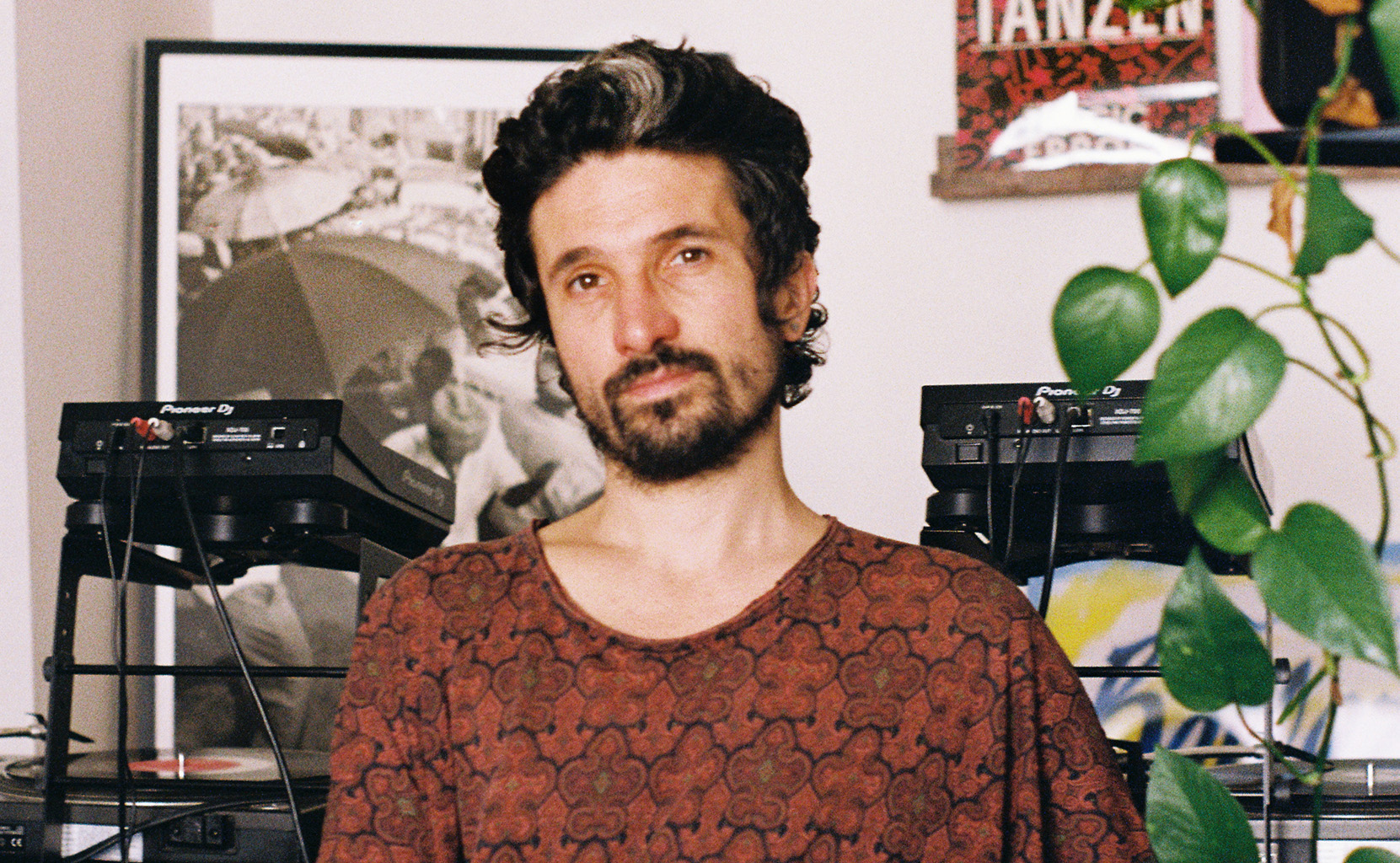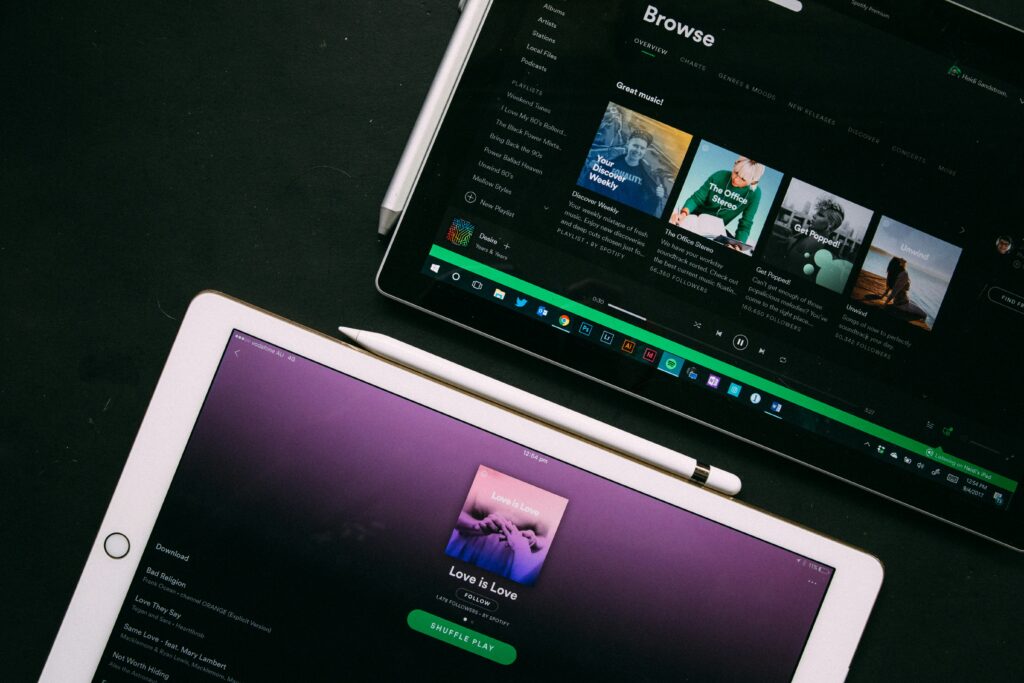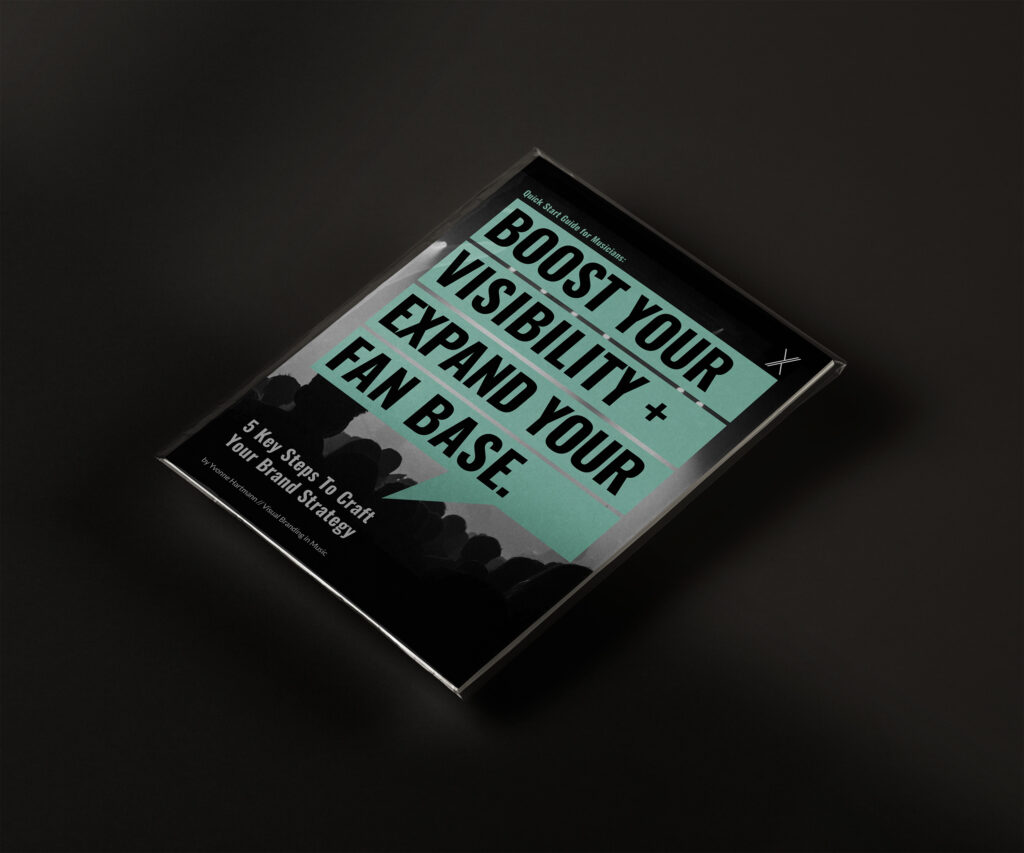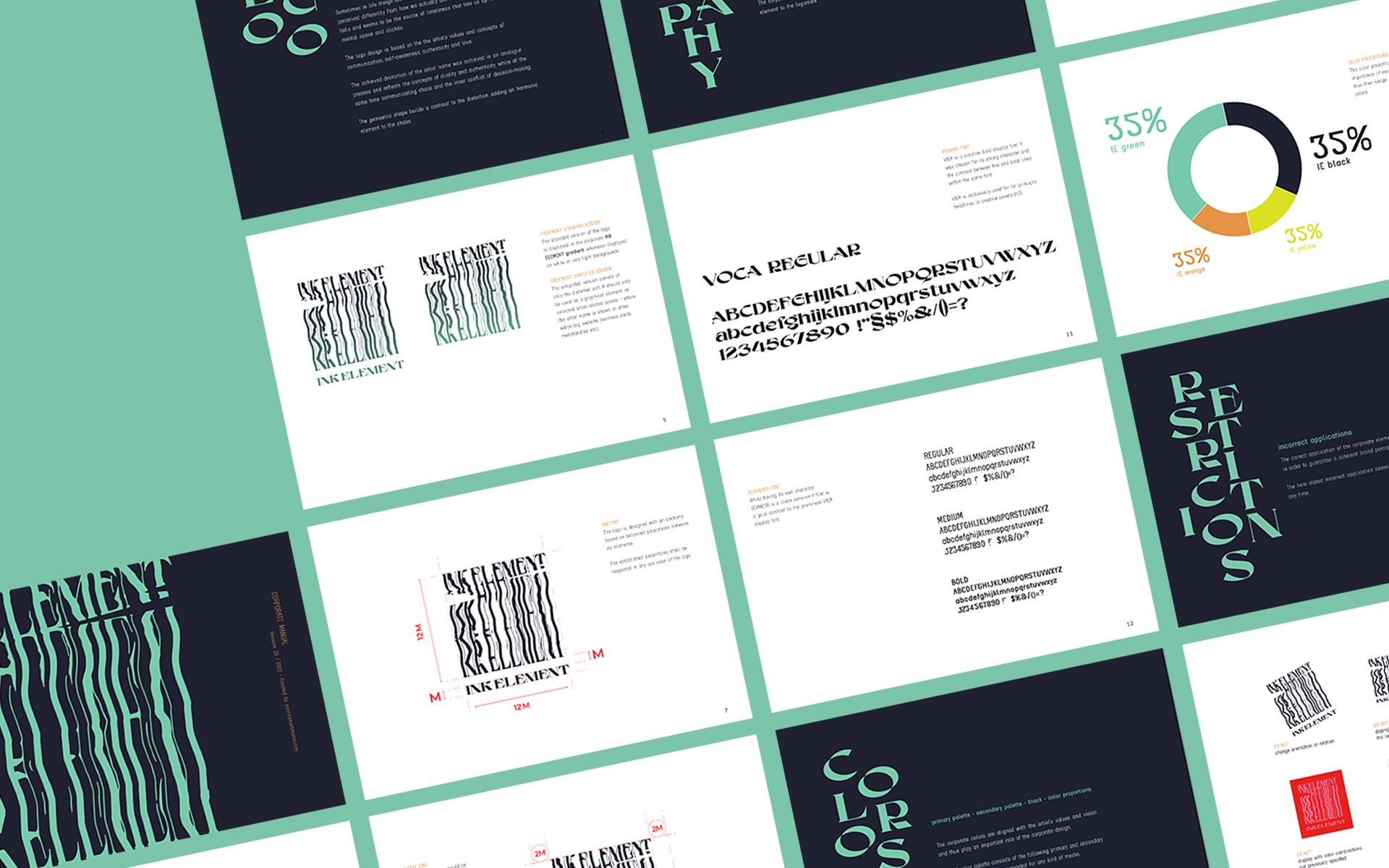
Music Analytics: Refining Your Marketing Strategy
In my last article I explored the world of storytelling and intentional release planning. But how do you know if any of it actually worked? What does “successful branding” even look like on a spreadsheet?
Data-informed music marketing is using audience insights—your streams, engagement, and listener demographics—as a creative compass. It’s the art of replacing guesswork with strategy to build a brand that truly connects and grows.
To find the answers, I spoke with marketing manager, creative strategist, DJ and event manager Marco Esposito. Marco works at the intersection of artists labels and brands bringing a data informed approach to the strategies and promotional projects he develops with the purpose of contributing to the sustainability of the music industry.
In our interview, Marco breaks down how to use data not just as a report card, but as a tool to actively refine your campaign and strengthen your brand strategy.
GENERAL INSIGHTS
// How did you get started in the music industry, and what led you to specialize in data-driven marketing?
Marco: When I had to decide for my university studies I enrolled in a bachelor program in Economy for Art, Culture and Communication because it had a music business class. Music has always been a drive for me since I was a kid.
After my studies I started working in tech, that’s when I moved to Berlin, and I specialized in digital marketing; these experiences had a strong impact in developing a data driven approach in marketing. Berlin brought me in touch with its club culture, I started djing and together with some friends we opened a community radio and I kept my connection with music and its business tight.
// How do you balance creativity and data in your marketing strategies?
Marco: In my marketing strategies I use data to support and validate creativity. I start from the analysis of what works well or what does not work well, I research for benchmarks and I look at data of the audience/fans that I want to reach and from there I start with the development of creative projects to implement.
When it comes to videos and content I use data to validate creatives and narratives that make sense to leverage, and to stop producing assets that do not create engagement. Data help me to improve efficiency in creative processes.
MUSIC INDUSTRY
// What are the most common mistakes you see artists make when it comes to marketing and in particular branding?
Marco: When it comes to marketing and branding these days I think it’s difficult for artists to work on a strategy because it takes a long term perspective to develop it while the rhythms are tight, so often I see they adapt to what other artists are doing to try to engage similar audiences in the short term.
I think that in the music industry it is important to build an ecosystem of professional figures (managers, promoters, business experts) that collaboratively can work with the artists at any of their stages to help them develop their career and promote their music in a sustainable way.
// What are some unique challenges or considerations when it comes to marketing for musicians or the music industry? How does music marketing differ from marketing in other industries?
Marco: I often hear artists that find it difficult to know what to do to promote their music. I think it’s challenging in the music industry to define a consistent communication plan and understand what really has an impact on the communication, because when artists and labels release new music they have to think immediately about the next ones.
Music marketing differs from other industries because it’s cultural marketing. In other industries it is easy to analyse which marketing activities work (are profitable) and which ones don’t, in music marketing it is possible to take “data informed” marketing decisions but it is limited to analyse their success in terms of streaming numbers or tickets sold.

DATA-INFORMED STRATEGIES
// How do you decide which metrics to prioritize when planning a campaign?
Marco: For me it’s important to discuss and define the goals together with the artists, the management and labels; from there we streamline campaign ideas and we define the metrics to measure them. With music and artists we’re not promoting a service, an app for which it is possible to define metrics of success in advance; of course we want to look at the number of streams, the number of ticket sold etc. but as mentioned before it would be a limit to evaluate success of a campaign only in these terms.
// Can you walk us through a successful campaign where data played a key role in its strategy and execution?
I find the campaign I run with Endel in collaboration with Polydor Records for the promotion of the release of James Blake’s album “Playing Robots Into Heaven” (Endel Chillout Soundscape) was a successful campaign informed by data from scratch
It was relevant to run an analysis of audience data before starting planning marketing activities; researching on data from social media and the use of the artist’s music on these channels helped drafting a narrative for the campaign.
The whole marketing plan was shared with the record label and it included paid channels and campaigns on streaming platforms, we set initial goals and we analysed results on a week over week basis to monitor the success of these campaigns.
We also planned an activation campaign in collaboration with London’s Tate Modern over an exhibition about the album that we put together and a live concert with James Blake that sold out and which amplified the awareness around the release.
// What tools or platforms do you rely on most for collecting and analyzing music marketing data?
Marco: I use a lot Chartmetrics as a dashboard for music data; there I can analyse streaming data, playlists’ data, numbers and trends from social media, I can get demographic information on the artists’ audiences and I can run researches and define benchmarks
// How do you measure the success of a release or branding campaign, beyond just streams and ticket sales?
Marco: I measure the success of a release or a branding campaign in terms of engagement; I would look at the use of the tracks on social media for example, how the track is shared by the audience. I would analyse the playlists’ placements, I would look at the music curators that played the release and the audience they reach.
In terms of a branding campaign I would analyze the awareness generated by a campaign and the cultural impact (I’m silently thinking about Charli xcx and Brat ahahaha).
CHALLENGES
// What are some challenges you face when interpreting and applying data in the music industry?
Marco: I think that in the music industry there is a constant expectation of reaching immediate results, while interpreting data from campaigns and applying a data informed approach to marketing initiatives is a process; it takes time and we have to look at data and analyse data under an incremental perspective.
// Have there been instances where over-reliance on data conflicted with creative decisions? If so, how did you handle it?
Marco: Usually I allocate a part of the marketing budget to new creative tests to make sure the strategy keeps an innovative approach. Data are helpful to guide decisions and to analyse what works, what doesn’t work and what needs to be improved in terms of campaigns; if I would rely only on data then I would suggest the same things over and over to artists and labels and the result would be a constant copy-paste of what has already been done and I don’t like that approach 🙂

THE FUTURE OF DATA IN MUSIC MARKETING
// How do you see the role of data evolving in the music industry over the next few years?
Marco: I think data will be central in the music industry over the next few years; data analysts will become key figures in music companies as well I guess 🙂 I see more platforms being built and rolled out and I see existing platforms constantly improving their products offering detailed dashboards for analysis. There is a need to improve and simplify ways data are tracked and measured in music, and I’m not talking only about streaming numbers or results from marketing campaigns, I’m also thinking about royalties, music publishing and so on…
// With the rise of AI and predictive analytics, what opportunities or risks do you foresee for music marketing?
Marco: I see opportunities for music marketing with the rise of AI if the technology is used as a sparring partner. AI can help shaping dashboards and make more informed decisions and through AI tools I can draft creative ideas to develop in team with artists and creators…I’m just excited to use and learn about more AI tools but for example I would not look into strategies to feed algorithmic playlists on streaming platforms; they are not sustainable…I would rather invest resources to build relationships with curators and there for example AI technology can help me in the research and in the evaluations of the right curators’ profiles to engage with.
// How do you think data can help emerging artists compete with established ones?
Marco: Emerging artists don’t have historical data to look at and this gives them a lot of room for experimenting, learning by doing and keeping track of results. For emerging artists it is easier to adopt an incremental approach in their career and since they are close to the communities they can have an immediate response of what works and what doesn’t; I think it’s an advantage for emerging artists that they can develop their career using their own data! Isn’t that beautiful?
ADVICE
// What advice would you give to marketers looking to adopt a more data-driven approach?
Marco: My advice would be not to forget to ask yourself “Why should the audience care about and engage with the campaign?” also to think about the value that you create with the campaign and the narrative, the story that is communicated through it.
A data driven approach is a guide, data help you to make decisions and to evaluate them, constantly keep in mind the cultural aspect and the impact on people’s life you want to have with the music you’re promoting.
(Title photo by Giulia Garetto)

Want More Branding Secrets?
Stay Tuned & Level Up Your Music Career!
Loved these branding tips? There’s more where that came from! Get started today with my FREE guide: “5 Key Steps to Craft Your Brand Strategy”—plus, join my newsletter for fresh branding tips straight to your inbox.






